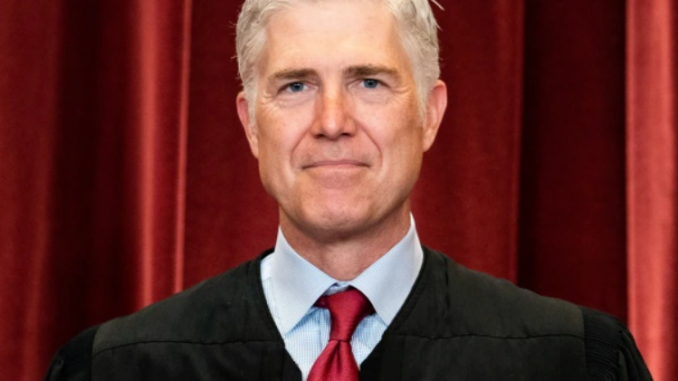
Supreme Court Justice Neil Gorsuch issued a flaming rebuke of the majority opinion in Wednesday’s high court ruling granting more power to states over Native American tribal land.
Writing in dissent, Gorsuch called the 5-4 ruling a “grim result for different tribes in different states,” but said its impact could still be limited by individual treaties and laws passed by Congress.
“One can only hope the political branches and future courts will do their duty to honor this nation’s promises even as we have failed today to do our own,” Gorsuch added.
The ruling in Oklahoma v. Castro-Huerta gives Oklahoma officials jurisdiction over crimes that involve non-Native Americans in Native American territory.
The state already prosecutes crimes committed in the affected land in which no Native Americans are involved. Tribal courts handle crimes committed by and against Native Americans.
In the case, Victor Castro-Huerta was convicted in state court of neglecting his stepdaughter, who has cerebral palsy and is legally blind. He was sentenced to 35 years in prison. The Oklahoma Court of Criminal Appeals last year threw out that conviction because of the 2020 precedent McGirt v. Oklahoma that granted prosecution power to tribal courts.
Castro-Huerta by then was already indicted for the same underlying offense by federal authorities, transferred to federal custody and pleaded guilty to child neglect. He has not yet been sentenced.
Thirty-five states are home to federally recognized tribes, according to the National Congress of American Indians. Before the Supreme Court ruling, 16 had already been given authority by Congress to assert jurisdiction over at least some tribal land for crimes involving Native Americans.
Gorsuch, who has long advocated for Native American legal rights, sided with the three liberal justices on the court. The decision overturned a 2020 ruling in which Gorsuch had written the majority opinion, Business Insider reported.
“Truly, a more ahistorical and mistaken statement of Indian law would be hard to fathom,” Gorsuch wrote in Wednesday’s dissent.
Oklahoma Gov. Kevin Stitt called the ruling a “clear victory for all four million Oklahomans, the state of Oklahoma, and the rule of law.”
“Justice has been delayed and denied to thousands of Native victims in our state for no reason other than their race. Now Oklahoma law enforcement can help uphold and enforce the law equally, as we have done for over a century,” he added.
Oklahoma Attorney General John O’Connor, a Republican, said that as a result of the McGirt ruling many crimes were not being prosecuted by federal authorities.
“Now the state prosecutors can take up the slack and get back to what we have been doing for 113 years,” O’Connor added.
The head of the Cherokee Nation said he was “disappointed” with the ruling.
“The dissent today did not mince words — the Court failed in its duty to honor this nation’s promises, defied Congress’s statutes, and accepted the ‘lawless disregard of the Cherokee’s sovereignty,'” Cherokee Nation Principal Chief Chuck Hoskin Jr. said.
Tribes had welcomed the McGirt ruling as a recognition of their sovereignty. The Supreme Court in January rejected Oklahoma’s request to outright overturn it.
Via Newsmax
